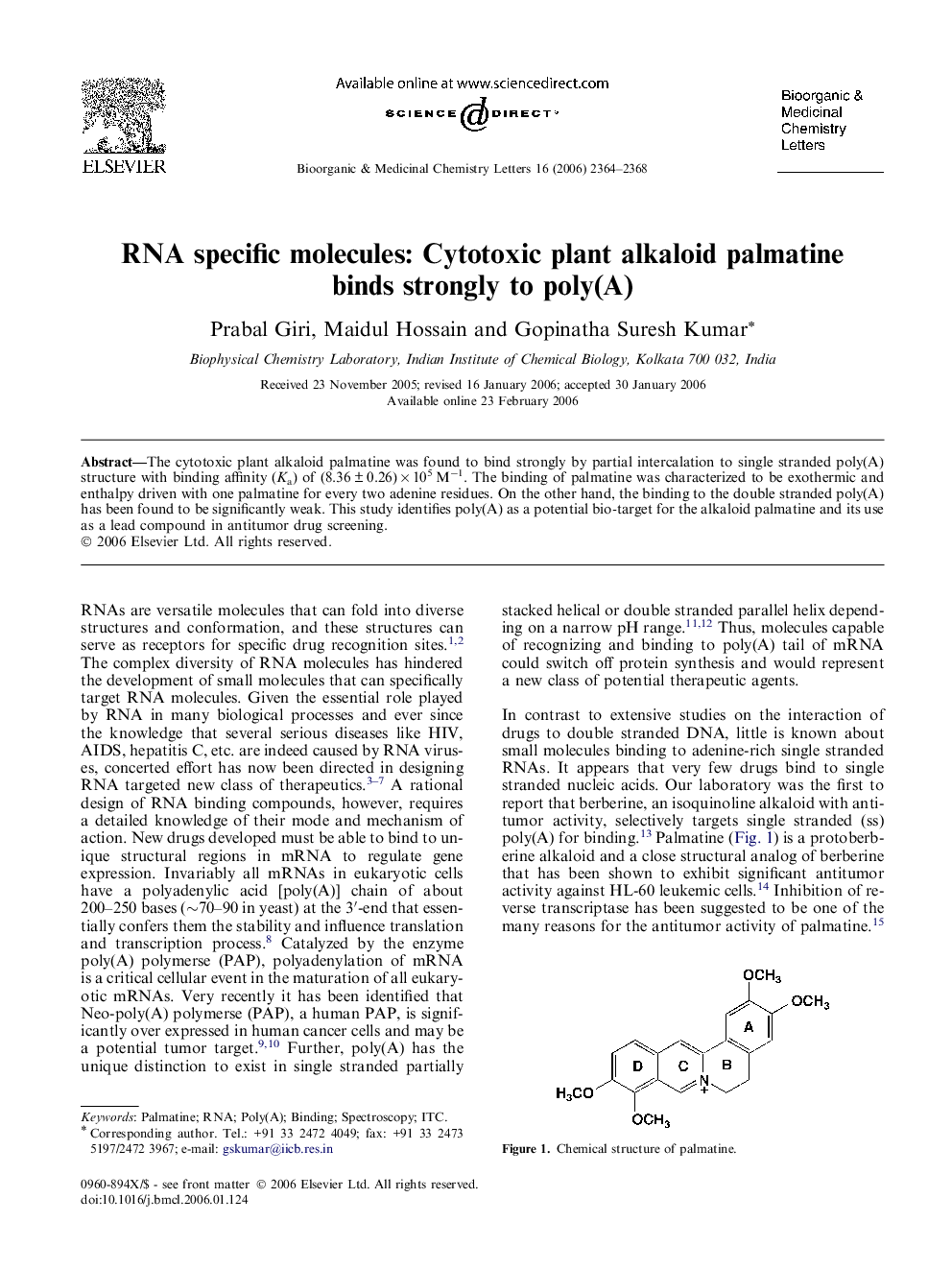| Article ID | Journal | Published Year | Pages | File Type |
|---|---|---|---|---|
| 1374702 | Bioorganic & Medicinal Chemistry Letters | 2006 | 5 Pages |
The cytotoxic plant alkaloid palmatine was found to bind strongly by partial intercalation to single stranded poly(A) structure with binding affinity (Ka) of (8.36 ± 0.26) × 105 M−1. The binding of palmatine was characterized to be exothermic and enthalpy driven with one palmatine for every two adenine residues. On the other hand, the binding to the double stranded poly(A) has been found to be significantly weak. This study identifies poly(A) as a potential bio-target for the alkaloid palmatine and its use as a lead compound in antitumor drug screening.
Graphical abstractPalmatine, the plant alkaloid, binds strongly to single stranded (ss) poly(A) by mechanism of partial intercalation, leading to its usefulness in inhibition of gene expression in eukaryotic cells.Figure optionsDownload full-size imageDownload as PowerPoint slide
